Chongde Garden
The Xiaojia River is about eight kilometers long. It originates from a tributary of the Qingshui River, runs through the city, passes through Guangfu Bridge and Binhe Road, and finally empties into the Jinjiang River. It is an important part of the main stream of Chengdu City. According to the
Xiaojiahe Sub-district Annals,this river was named after the Xiao surnamed farmers who lived along it during the Qing Dynasty. To this day, this river still flows quietly in the urban fabric.
Extending outward from Xiaojiahe Middle Street is Gaoshengqiao East Road, with the two facing each other across the river. An ancient bluestone bridge lies between them, and the water is clear and flows ceaselessly. The traditional square pavilions and long corridors built along the river in the style of western Sichuan retain the characteristics of the regional culture and have also become great places for the surrounding residents to socialize and relax.
If you keep walking forward, you will enter Chongde Garden. This is a wonderful place. Once you step in, it feels as if you have plunged into the crevices of the city's time. Tea houses of all sizes are attached like vines along the banks of the Xiaojia River, with bamboo chairs and mahjong tables scattered among them. This place has long transcended the traditional definition of a teahouse and is more like an open community living room - without access control, accessible in all directions, and you can enter from any direction at will, always encountering some daily anecdotes.
In Chongde Garden, nothing is strange to do. Some people play mahjong, fight long cards, and play flight chess. Some debate business strategies and talk about street gossip. Others play with cats and walk birds, or simply just sit quietly and daydream. Whether they blend into the hustle and bustle or enjoy the tranquility alone, people can always find their own corner of the world here.
Even more secluded is the "Book Heart Pavilion" in Chongde Garden, where a painting and calligraphy academy is hidden. It is also one of the quietest corners of Chongde Garden. Climbing the steps, you will find an elegant calligraphy classroom, which contrasts sharply with the bustling scene downstairs. The ink fragrance and tea smoke blend together, one dynamic and the other static, reflecting the dual temperament of the people of Chengdu.
Most of the residents who often come to Chongde Garden plan to sit here for a whole day. When you are hungry, go to a nearby small noodle shop to have a bowl of steaming hot noodles or order a plate of rice bowl. After eating, go back to the tea table and refill a pot of aged tea. Days pass by at such a slow pace, meandering along with the Xiao Family River.
Jinqin Old Teahouse
In September 2024, in an alley of Fuqin Community in Chengdu, a "Jinqin Old Teahouse" quietly emerged. At first glance, the classic architectural style of western Sichuan dwellings makes the teahouse look particularly ancient and simple. If it weren't for a brightly colored red cloth hanging on the main beam, you would really think it has a history of over a hundred years when you step into this teahouse.
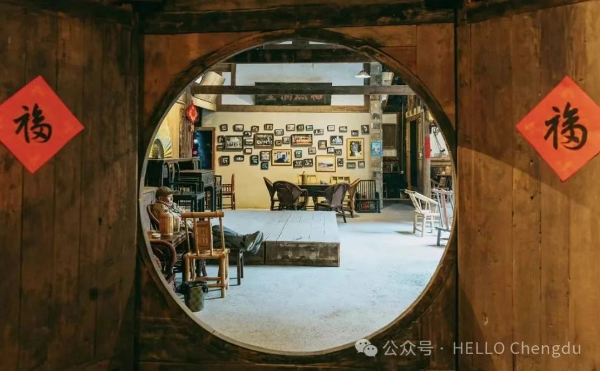
This "old teahouse" is actually a community cultural space jointly created by the Chengdu Peking Opera Research Institute and the Fuqin Community. Inside the hall hangs a plaque that reads "Jingyun Jinqin", surrounded by various traditional Chinese Musical Instruments. In the small courtyard, there is also a tall ginkgo tree. The most eye-catching feature is the 16 large pillars as thick as buckets standing in the front hall, which is extremely imposing. Although the teahouse is newly built, it is said that all the building materials are from genuine Qing Dynasty buildings. Sometimes, teahouses also have Peking Opera performances, but the shows are not regular. Whether you can encounter them depends entirely on luck. Since its opening, Jinqin Old Teahouse has been almost always full of customers every day. On fine days, it's even more difficult to get a seat.
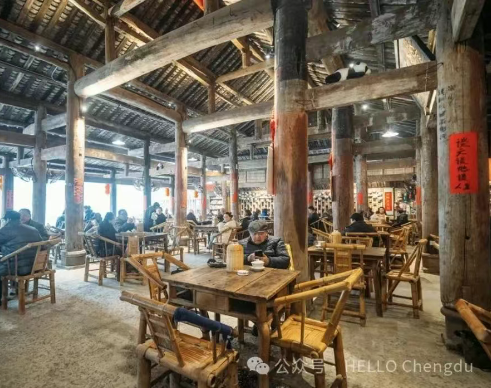
But what deserves the most attention about Jinqin Old TeaHouse is not its retro "shell", but the community spirit embedded in it. Fuqin Community is a typical old community in Chengdu. Around almost every residential building, one can find the traces of tea houses. In those corner tea houses, tea drinkers are as familiar as neighbors. They sit down to drink tea every day, not just for "drinking tea", but more importantly for a sense of "presence". Just as the historian Wang Di said, the teahouse was the earliest form of public life in this city. Whenever an acquaintance walks into the courtyard gate, someone always looks up to greet them - perhaps with a glance, or perhaps with a joke. Some casual conversations can only be understood by acquaintances, and only among acquaintances can they be discussed.
Just a few steps out of the teahouse, you'll reach the Fuqin Night Market, where stoves are churning and laughter fills the air. Here, "having enough to eat and drink" is no longer a simple expectation, but the true form of life.
Yulin Teahouse community
If there were a treasure travel map of the Chengdu Plain, this land of abundance, "Yulin" would surely be highlighted on it. People in Chengdu are known for their "slow life", and Yulin is a microcosm of this lifestyle.
Drinking tea in Yulin is an ordinary yet meaningful daily routine for people in Chengdu. This is not only because the teahouses in Yulin are scattered all over the streets and alleys like stars, but also because these teahouses have long been integrated into community life and have become the most natural social Spaces for residents. In the spacious open-air square of Yulin North Road Community, whenever the sun shines, people set up tea tables and place wooden chairs. The aroma of green tea fills the air, and the leisurely voices of conversation and the waves of laughter blend into a warm atmosphere. When the tables and chairs are put away, the square becomes the center for residents to hold community activities - it is the screening venue for open-air movies and also the stage for street dramas. The unique cultural genes and living conditions of Yulin keep it vibrant continuously, which is also one of the reasons why everyone loves Yulin.
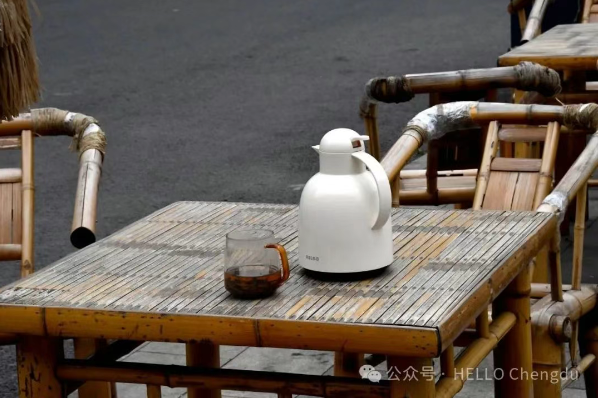
From Yijie Lane to the "Market Book House" beside Yimin Market, and then to the Courtyard Cultural and Creative Park, every landmark project has become a new footnote to the community culture of Yulin. By chance, I passed by a small teahouse. On the wall, there was a crooked inscription that read, "Being kind to others leads to a vast world; being overly concerned about gains and losses brings more troubles." Maybe you, like me, would stop and smile, leaving all your troubles behind, and enjoy this easy-going philosophy of life together with the residents of Yulin.
Caojiaxiang x Sweet Potato Community Teahouse
At the location of Hengda Caojiaxiang Square near Fuqing Road, a modern building has emerged. The outer grey vintage brick walls and large areas of floor-to-ceiling Windows endow this building with a fashionable and youthful temperament. Pushing the door open and entering, this complex space integrating a tea house, a bar and a bookstore is the location of the "Sweet Potato Community".

The teahouse in the Sweet Potato Community is somewhat different from those in other streets and alleys: it is run by a shop owner who sells sugar-fried fruits and attracts a large number of young people to visit. As the first resident of the Sweet Potato Community to join the "Progenitor Program", he carries a unique memory of Caojiaxiang and writes a new story in the community where he has lived for a long time. There are no tiger stoves or copper kettles here, nor are there waiters or tea doctors. But people can taste all kinds of green tea, flower tea, even coffee here, or have a cup of mojito or gin and tonic. The two-storey community space building blocks the sunlight for the outdoor tea-drinking area, and several banyan trees at the entrance also provide natural shade for tea drinkers.
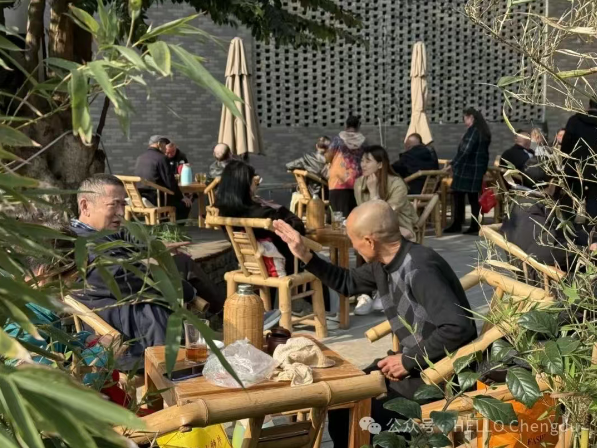
The Sweet Potato Community welcomes every visitor with a well-balanced atmosphere and an open and inclusive attitude, becoming a bond connecting residents, streets and alleys, and The Times. Here, everyone who steps into it can find a sense of belonging and value. This teahouse, as the "shared living room" of the Sweet Potato Community, not only continues the social function of traditional street teahouses but also provides a warm haven for people living in the fast-paced modern life to resist a sense of alienation.
Source: Hello Chengdu
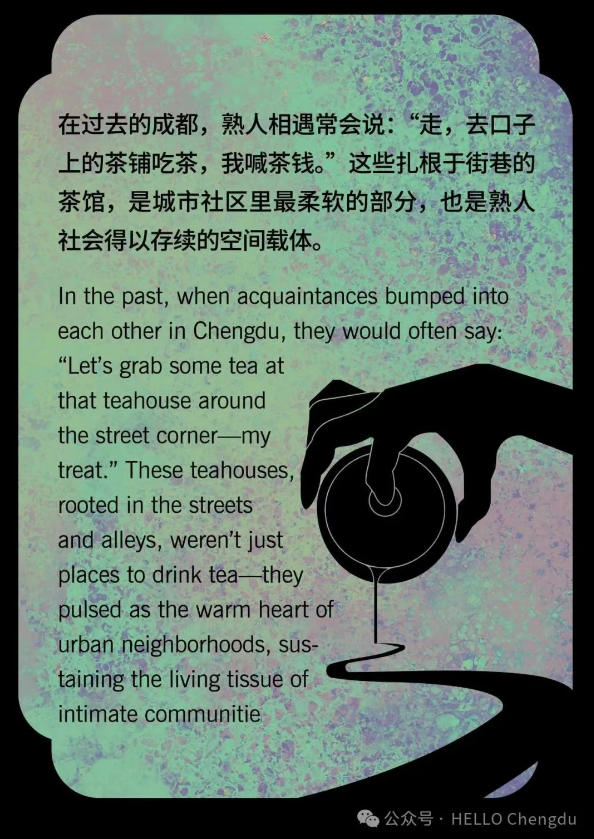
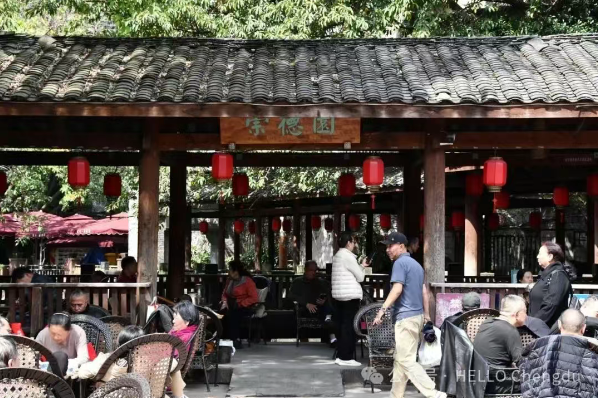
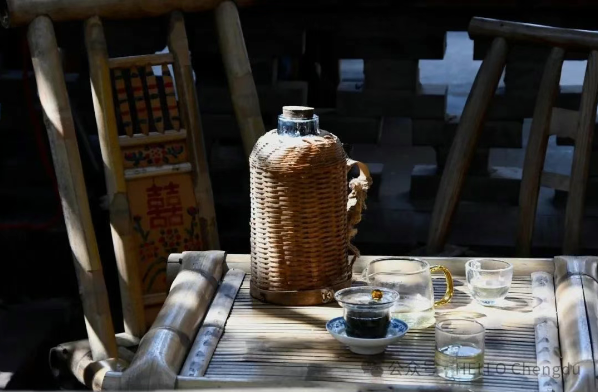






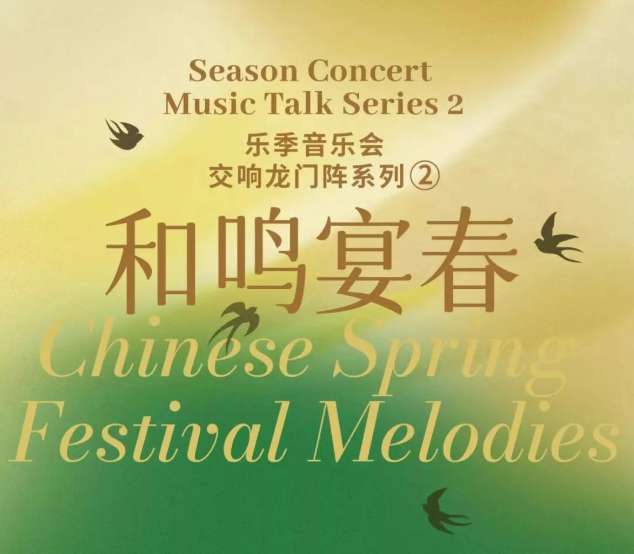
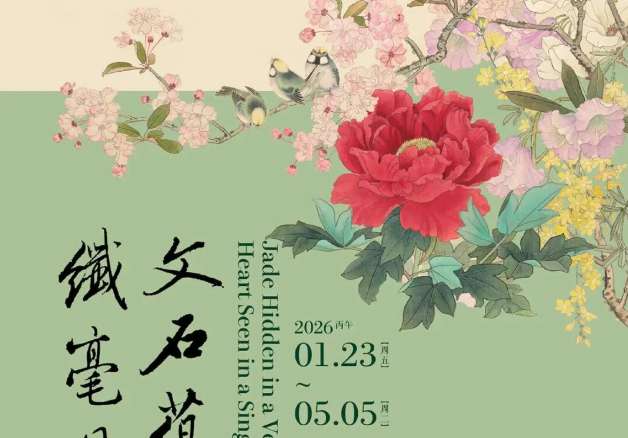






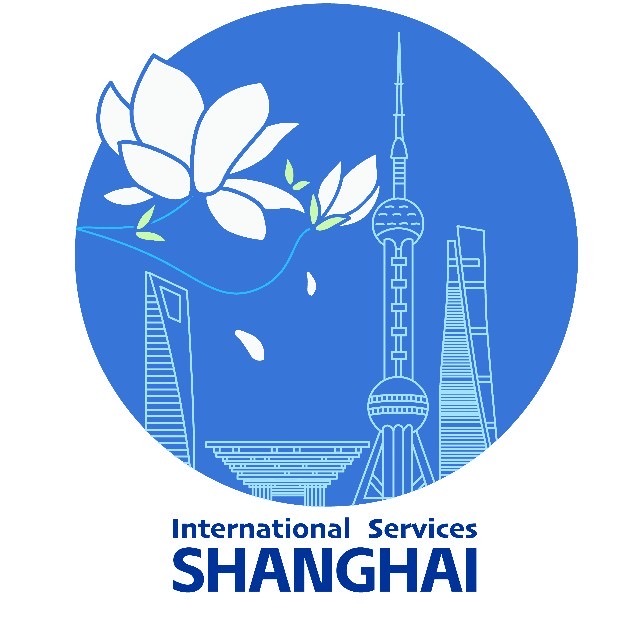






 京公网安备
京公网安备